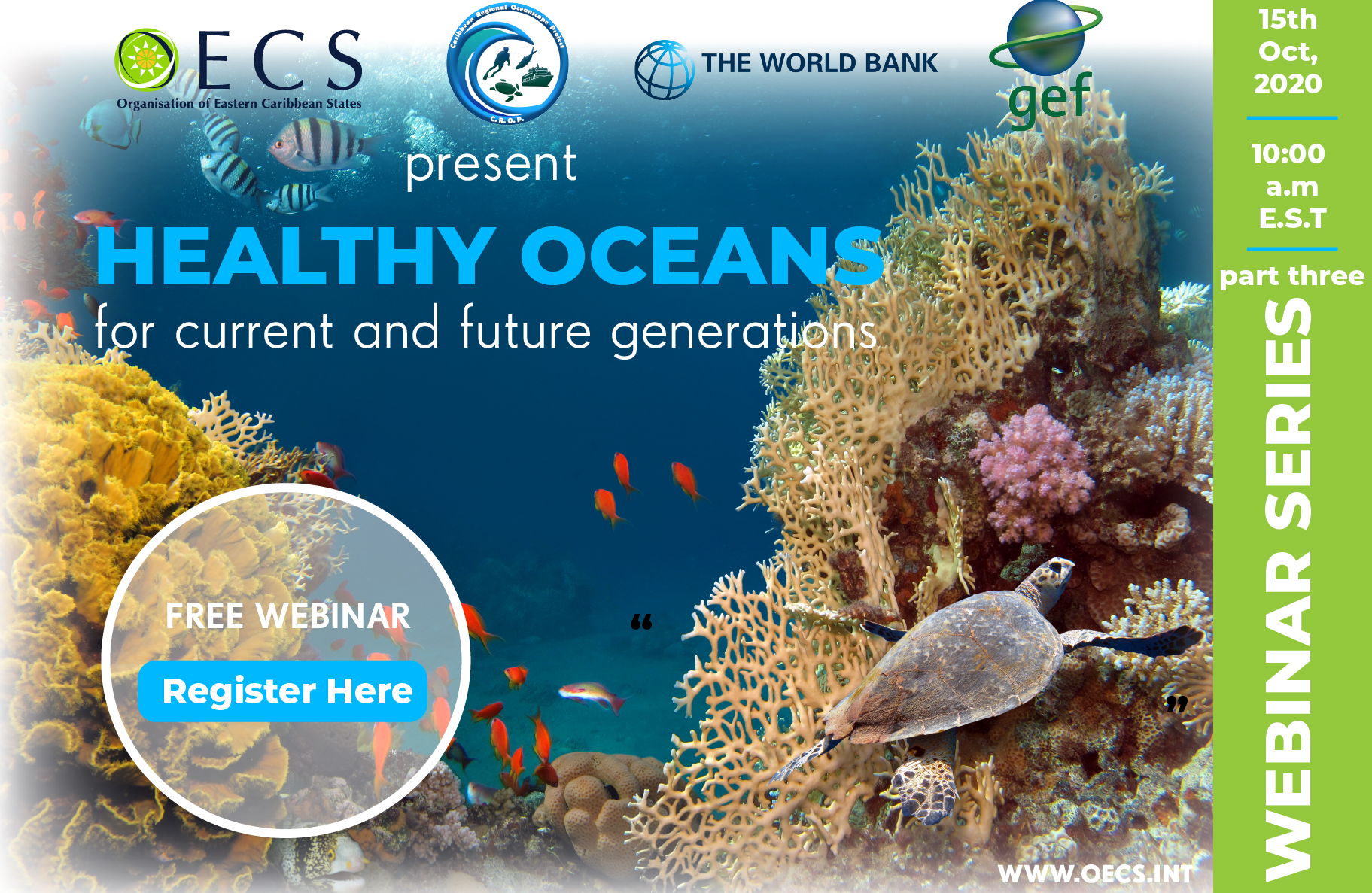Ensuring sustainable use of Marine Resources in the OECS
Webinar Alert!
On the heels of the highly successful SDM 2020 – Blue Economy Investors Roundtable, the OECS is set to host the third and final in its current Blue Economy webinar series. This webinar entitled Healthy Oceans for current and future generations will be held on Thursday October 15 at 10:00 a.m. It will focus on the role of Monitoring and Compliance in ensuring sustainable use of ocean resources in the OECS.
It has been widely acknowledged that the coastal and marine assets of OECS Member States offer unprecedented opportunity for further development of their economies as well as reducing poverty and unemployment. However, ensuring that people comply with the rules and conditions laid out under ocean governance frameworks is necessary to safeguard ocean resources and reduce conflict among users of the resource.
The October 15 Webinar will bring together experts and key stakeholders who will discuss the importance of monitoring and compliance as part of good ocean governance.
Director of Ocean Governance and Fisheries at the OECS Commission, Commander David Robin says, “Monitoring and compliance are critical in ensuring the ocean resources of OECS Member States are used in a sustainable manner and are not exploited to the detriment of current and future generations.”
A key component of the Caribbean Regional Oceanscape Project (CROP), is Coastal and Marine Spatial Planning (CMSP). Under the CROP, coastal and marine spatial plans are being developed for Dominica, Grenada, St. Kitts and Nevis, Saint Lucia, and St. Vincent and the Grenadines. The CROP is gearing up for a fresh round of CMSP Consultations with key stakeholders in these five member states to review draft plans. The Marine Spatial Plans will seek to address the allocation of marine space and marine resources to help reduce conflict among multiple users, and support monitoring and compliance.
The OECS recognizes that citizen engagement and participation in the process of developing ocean strategies and policies, is key to achieving more equitable distribution of benefits to all. The next round of CMSP Consultations gets underway in late October and extends through to the end of November. The CROP will also be engaging the media in the five member states to help build awareness and participation in the process of consultation, and to help push the ‘Blue Growth’ agenda.
The Caribbean Regional Oceanscape Project (CROP) funded by the Global Environment Facility through the World Bank. It aims to move OECS Member States closer to a blue economy.
REGISTER TO JOIN THIS WEBINAR!
Topic: Blue Economy Champions for our Blue Growth Future
When: Oct 15, 2020 10:00 AM Puerto Rico
Register: CLICK HERE
